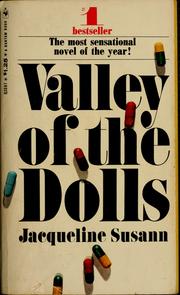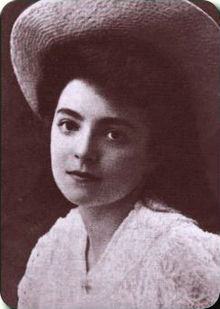For the most part yesterday was a rainy day. But the missus and I did manage to get out a bit. I got the back tire fixed early in the morning, then Jo and I visited a couple of open houses. They were nice enough but out of our price range. Still always nice to look around. We picked up some paint, went to the Lazy-Boy store to look at possible rugs for the living room and then picked up some groceries for dinner.
Excellent television last night; Dr. Who, two episodes of Wynonna Earp. It kind of reminds me of Buffy the Vampire Slayer. Has that feel; enough tension and humour to make a good mix. We then watched the last episode (possibly ever) of Ransom and then caught up a bit with one of the later episodes of Season 2 of 19-2. Excellent, gritty cop show set in Montreal.
This morning I had a reasonable run, watched some football and finished off Tender Death by Annette Meyer. It's the 2nd mystery of hers that I've read. I didn't mind it. It's been on my shelf for ages and I'm glad to finally have given it a try. I may try others of her books, but I won't rush out to find any. Moving on to the letter 'S' in Sue Grafton's Kinsey Milhone series. I always enjoy them. They are good cozy mysteries and Kinsey and her friends are excellent characters.
A Bit of History
So we move on to the latest excerpt from Great Historical Events from Treasures of Use and Beauty. This excerpt starts with the persecution of the Quakers in the United States and general religious intolerance. Doesn't that sort of sound familiar??
"PERSECUTION OF THE QUAKERS
1656. Quakers first arrive in Massachusetts. Their persecution by the Puritans. Religious intolerance was carried to such an extent by these misguided zealots that they actually tormented and put to death, by scores, the only Christian sect in America who advocated the doctrine of peace, and who denied the right of man to take life under any circumstances. (Ed. Note - *sigh*)
1659. Four Quakers executed on Boston Common.
1660. Quakers prohibited from emigrating to Virginia under severe penalties. A duty of 5 per cent was levied by the English government upon all merchandise of import or export in the American colonies.
Great English navigation act established.
1662. Three persons hung for witchcraft in Hartford, Conn.
1663. Remarkable earthquake lasting with short intervals for six months. The face of the country in some localities entirely changed.
First settlement in North Carolina.
1664. Elliot translated and printed the Bible in the language of the American Indians.
First permanent settlement in New Jersey. (Ed. Note - Governor Christie stops traffic on the bridge... oh wait, that wasn't for a little while)
1665. June 12. - New York City incorporated
1666 - 75, Marquette explored the Mississippi River.
1666. Death of Lord Baltimore
1669. First settlement in South Carolina
Foundation of modern Charleston laid, which soon became the port of trade and the capital of Carolina.
A war broke out between the Carolina colonies and the Indians, which was speedily terminated by the Governor offering a bounty upon every captive Indian.
Indians were sold to the West Indies as slaves, in exchange for rum. (Ed. Note - *double sigh*)
Next excerpt will commence in the 1680s with introduction of William Penn.
Letters of Congratulation
The letter which follows was written by a James Hopewell to a friend who had just been elected to Congress.
"Metropolisville, Nov. 5, 1875.
Hurrah! the battle is fought and the victory won! Give me your hand, old friend, while I give it a good squeeze of congratulation on your election. The result has not surprised me in the least. I knew you would be elected, because I knew that you deserved to be, and that the people of your district had sense enough to know it too. Some say, 'Principles, not men;' but I say, 'Principles and men.'. This honor is as much a tribute to your personal worth as to the correctness of your principles. Just such men as you are needed in Congress - never more than now; and I believe you will fulfill every expectation, and honor yourself and your constituents. That such may be the case shall ever be the prayer of -
Yours faithfully,
James Hopewell." (Ed. Note - To all politicians! Words to live by!!)
Next entries will provide a couple of examples of letters of condolence...
The Birth Day Thing - 10 November 1966
US Billboard #1 Song, 10 November 1966
Last Train to Clarksville by The Monkees. The Monkees were originally formed in 1965 for the TV show of the same name. They consisted of Davy Jones, Peter Tork, Michael Nesmith and Micky Dolenz. The band was active from 1965 - 1971. Last Train to Clarksville was their first released single and first of 3 US #1s.The song was written by Tommy Boyce and Bobby Hart.
UK #1 Single, 10 November 1966
Reach Out I'll Be There by The Four Tops. The Four Tops were a quartet out of Detroit, Michigan who helped define the Motown sound. They performed for over 4 decades without a change of personnel, from 1953 - 1997. Reach Out I'll Be There was their first UK #1 and 2nd US. It was written by Holland - Dozier - Holland, as were so many Motown hits. (Fantastic song.)
New York Times #1 Fiction Best-Seller, 10 November 1966
Valley of the Dolls by Jacqueline Susann. Valley of the Dolls was Susann's first novel and currently has sold 31 million copies. I haven't read the novel but I have seen the movie; starring Patty Duke, Barbara Parkins and Sharon Tate. It's definitely a movie of its time but still excellent. I'm sure my mother had a copy of this when it came out.
It tells the story of three young women living in the post - war worlds of Broadway and Hollywood.
Pulitzer Prize Winner - 1966
Collected Stories by Katherine Anne Porter. The book contained 19 'short stories and long stories' by Porter. Porter was an American writer from Texas who lived from 1890 - 1980. She is also known for her novel, Ship of Fools, but her short stories received much more critical acclaim.
Nobel Prize Laureate - 1966
Shmuel Yosef Agnon (Israel) / Nelly Sachs (Sweden). Agnon was born in the Ukraine in 1888 and died in Israel in 1970 and was one of the central figures of modern Hebrew fiction. He was awarded the Nobel Prize for Literature 'for his profoundly characteristic narrative art with motifs from the life of the Jewish people'.
The prize was shared with Swedish poet and playwright of German Jewish birth, Nelly Sachs. Sachs lived from 1891 - 1970. On receipt of her Nobel Prize, she observed "that Agnon represented Israel whereas "I represent the tragedy of the Jewish people".
Hugo Award Winner - 1966. The award was shared by two authors.
Dune by Frank Herbert. I read this back during my university years. I'm sure it was one of the books included in my university Science Fiction novel course. I quickly followed it with Dune Messiah and Children of Dune. I have never read the other two books in the series. It was a fascinating series, but after awhile, I have to say that the theme of prescience kind of got to me. Why read the books when you know what is going to happen?
However having said that, Herbert created a fascinating world, economy, religion and a series of novels fraught with tension and intrigue. Well worth reading.
And Call Me Conrad by Roger Zelazny. I have read other works by Zelazny, mainly The Chronicles of Amber which is a fascinating series. And Call Me Conrad is the serialised version of This Immortal. From the description, the story is about an Earth destroyed by nuclear war, with a severely reduced population and overrun by mutated life forms. Sound interesting?
Edgar Award Winner - 1966
The Quiller Memorandum by Adam Hall. Adam Hall was a pseudonym of Elleston Trevor (who also wrote The Flight of the Phoenix). The Quiller Memorandum is a story about a British spy. A Quiller is a word for a British spy. The story was also titled The Berlin Memorandum and was the first of 18 Quiller books. I will have to try this book.
Next excerpt will cover 1967. :0)








No comments:
Post a Comment